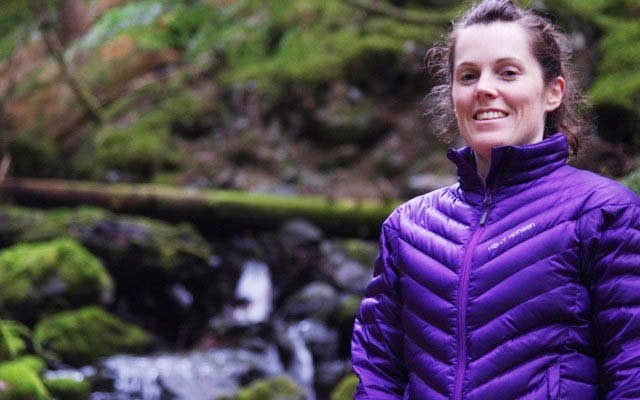The Association of Whistler Area Residents for the Environment (AWARE) is asking the municipality to enshrine citizens' rights to a healthy environment in a declaration inspired by David Suzuki's national Blue Dot movement.
The letter, which will be considered at a January council meeting, calls for RMOW staff to develop the declaration in support of the wider goals of the Blue Dot campaign, which seeks to have Canadians' rights to clean air, water and soil included in the Charter of Rights. Suzuki and a group of environmental activists and performers wrapped up the national tour last month.
"This was something that came about from people in our membership asking us to look at this and put something together for Whistler," said AWARE executive director Claire Ruddy. "We are lucky enough to have been at the forefront of (efforts to improve the) environment and sustainability, so I really don't see a reason not to do this."
Several communities have already adopted similar declarations as a result of Suzuki's campaign. In Vancouver, the principles of the declaration were combined into the city's existing Health City Strategy; a commitment was made to seek similar declarations in the more than 80 municipalities in the Greater Montreal area and Richmond formalized the document within its own Sustainability Plan and used it to increase community involvement on environmental issues.
Ruddy hopes the declaration will have a similar effect in Whistler, shining a light on the community's long-term vision for sustainability, Whistler 2020. The plan was thrust back into the spotlight during the most recent election campaign, with candidates debating how to move forward on the sustainability document's goals and build on the extensive community engagement that was seen during its drafting, which began in 2002.
"People feel like there is a gap in the community engagement process. People were able to help set the goals and then go away in their own lives and help achieve them, and that's what we need to get back to, but also learn from what went on in the past," said Ruddy. "Whistler 2020 is going to change. There's been this extensive gap and we need to revisit what it will look like moving forward."
Until 2012, Whistler was largely on track to meet the goal of reducing greenhouse gas (GHG) emissions in the community 33 per cent from 2007 levels by 2020. A July report to council found, however, that the resort will have to make "significant improvements" in order to hit that target.
The report showed that 2013 GHG emission levels were estimated at 17.5 per cent lower than in 2007 — a 19-per-cent drop would have put Whistler on target with green goals — and 23 per cent lower than figures from 2000. The emission levels for the year were 1.3 per cent lower than in 2012 — below the annual target required to meet the 2020 benchmark.
Vehicles still make up the bulk of Whistler's GHG emissions, at about 62 per cent, while energy consumption rates in Whistler also showed a concerning trend, with 2010 to 2013 marking the three highest years of energy usage in the community ever recorded. Last year did see a slight reduction in energy consumption, however, of 2.1 per cent compared to 2012.
At 45 per cent, electricity was the most prevalent energy type used in Whistler last year. Vehicle fuels made up approximately 31 per cent, with natural gas making up a quarter of the total energy consumed in the resort.
AWARE is encouraging residents to join the 64,000 Canadians and 200 Whistlerites who have already signed the Blue Dot petition to have environmental rights included in the Charter of Rights, at www.bluedot.ca/join-us.




